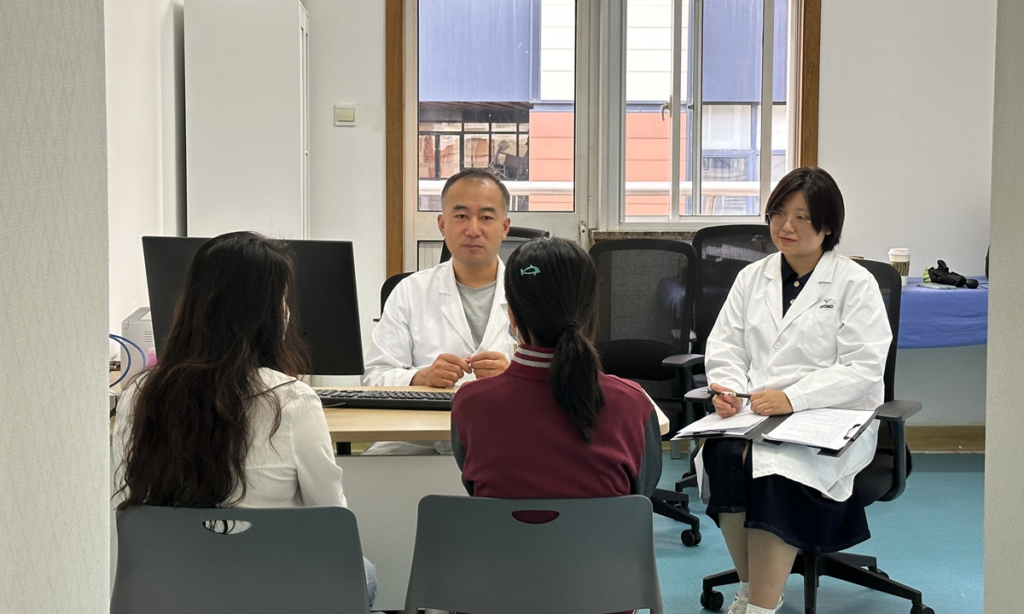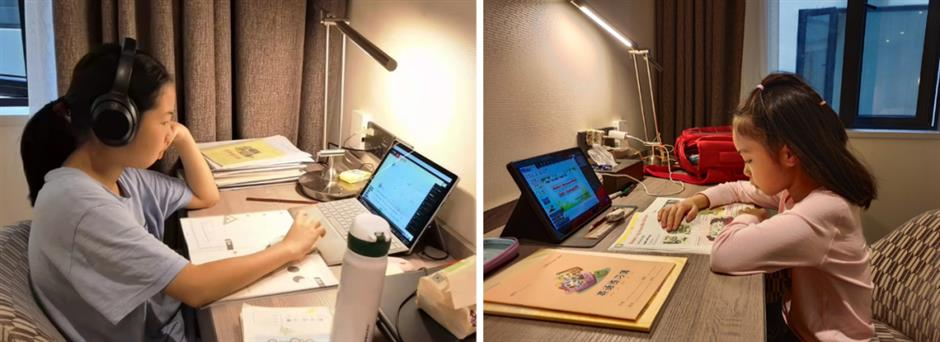A groundbreaking clinic has opened in Shanghai Children’s Medical Centre to help children struggling with mathematics. The Spatial and Mathematical Learning Difficulties Clinic is the first of its kind, offering innovative treatments to address the root causes of math difficulties through medical intervention, aiming to improve spatial cognitive abilities.
The clinic combines medication, social support, and educational tools to target neurological factors that hinder students’ performance in math, particularly in geometry.
Addressing Spatial Cognitive Deficits
The Shanghai-based clinic’s approach focuses on a key underlying factor contributing to math difficulties: spatial cognitive deficits. According to research conducted through neuroimaging, students who struggle with mathematics, especially in subjects such as geometry, have been found to exhibit decreased activity in the parietal region of the brain.
Read : Regent International: World’s Largest Residential Building That Houses 20,000 People in China
This part of the brain plays a significant role in spatial reasoning, which is essential for solving geometric problems and understanding abstract mathematical concepts.
Read : NATO Accuses China of Aiding Russia’s War on Ukraine
Math, and particularly geometry, requires an ability to visualize shapes, spaces, and spatial relationships. Children who face difficulties in these areas often struggle with recognizing patterns, manipulating objects in their minds, and solving problems that require an understanding of three-dimensional space.
These challenges can extend beyond geometry and negatively impact performance in related fields such as algebra, physics, and chemistry, where spatial reasoning is a core component.

The clinic’s introduction of spatial cognitive treatment has been heralded as an innovative step in addressing these challenges. By focusing on the physiological and neurological aspects of spatial reasoning, the clinic hopes to improve students’ mathematical abilities through a combination of medication and cognitive therapies.
The treatment goes beyond traditional tutoring or educational interventions by taking a more scientific approach to understanding how the brain processes mathematical problems.
Innovative Treatment Methods
The Spatial and Mathematical Learning Difficulties Clinic offers a holistic treatment plan that includes medical intervention, therapy, and educational support. For children who struggle with math due to spatial deficits, the clinic administers medication designed to improve brain function in areas responsible for spatial reasoning.
While the use of medication in this context is novel, proponents believe that targeted treatments could help rewire the brain’s approach to spatial problems.
In addition to medication, the clinic emphasizes the importance of engaging students in lively discussions and social interactions, aiming to reduce the stigma surrounding math difficulties.
The clinic leverages social media platforms to create supportive communities where students, parents, and educators can share their experiences, successes, and challenges in overcoming math struggles.
This focus on building a community around math learning is an integral part of the clinic’s mission to not only treat the medical condition but also to address the psychological and social factors that contribute to math anxiety.
The clinic’s educational component is designed to work in tandem with medical treatment. By helping students develop strategies to improve their spatial reasoning and providing tools that align with their neurological needs, the clinic offers a comprehensive support system.
This ensures that students receive both medical treatment and practical support to enhance their learning experience. For many students, the inability to grasp complex subjects like geometry, algebra, physics, or chemistry stems from a lack of imagination and spatial perception.
The clinic offers specialized learning plans that incorporate visual aids, hands-on learning tools, and real-world applications of mathematical concepts to make abstract ideas more accessible.
Teachers’ Reactions and Future Implications
While the clinic’s methods have sparked considerable interest, they have also generated a mixed response from educators. Some math teachers, like senior teacher Zhang Zeng, have expressed their support for the clinic’s innovative approach.
Zhang noted that precise medical analysis could help identify the root causes of students’ difficulties and allow for necessary adjustments to their learning strategies. By addressing the neurological factors involved, Zhang believes the clinic could help many students who otherwise struggle with traditional learning methods.
However, not all educators share this enthusiasm. Some teachers are concerned that the clinic may blur the lines between medical issues and learning difficulties.
They argue that while spatial cognitive deficits may play a role in some students’ struggles with math, other factors, such as ineffective teaching methods, lack of motivation, and a poor educational environment, are equally significant contributors.
These teachers emphasize that not all math difficulties can be reduced to medical or neurological causes, and caution against over-reliance on medical interventions.
This divergence in opinion highlights the complex nature of math education and the variety of factors that contribute to students’ success or failure in the subject. While the clinic offers a new avenue of support for students with specific neurological challenges, it is not a one-size-fits-all solution.
The clinic’s success will depend on its ability to integrate medical treatments with broader educational reforms, ensuring that students receive the comprehensive support they need to excel in mathematics.

The clinic, which charges a fee of 316 yuan (US$45) per session, is open to students of all ages. Despite its focus on younger children, there is no age restriction, and the clinic’s services have been fully booked for the month of October, indicating a high level of interest from parents and educators alike.
As the clinic continues to operate, its impact on math education in Shanghai, and potentially across China, will be closely monitored by educators and researchers. The opening of the Spatial and Mathematical Learning Difficulties Clinic at Shanghai Children’s Medical Centre represents a bold and innovative approach to addressing math difficulties in students.
By focusing on spatial cognitive deficits and offering a combination of medical treatment and educational support, the clinic aims to improve students’ performance in mathematics and related fields.
While its methods are still new and somewhat controversial, the clinic has the potential to revolutionize the way educators and medical professionals address learning challenges in math.
As more students and families seek support for math-related difficulties, the success of this clinic could pave the way for similar initiatives across the globe.
However, it will also be important for educators to remain mindful of the diverse factors that contribute to math struggles, ensuring that medical intervention is seen as one tool among many in the broader effort to improve math education.

